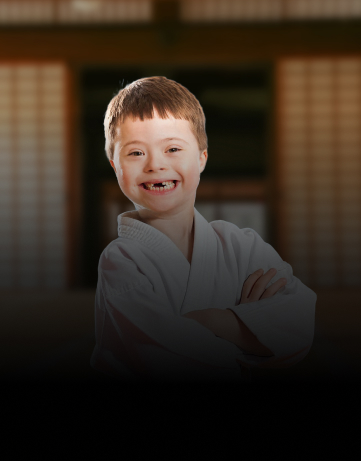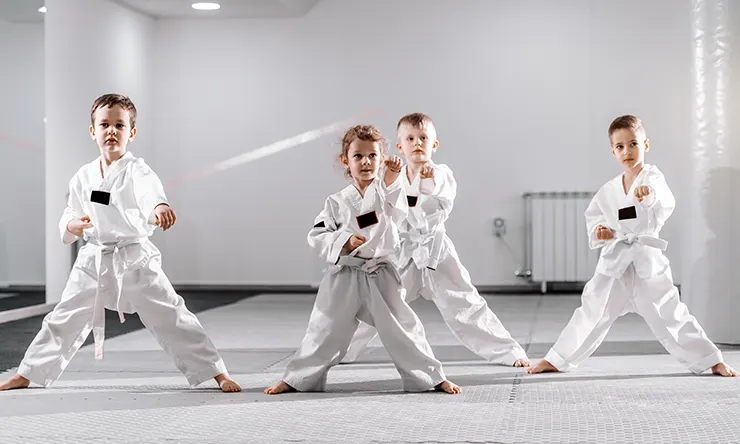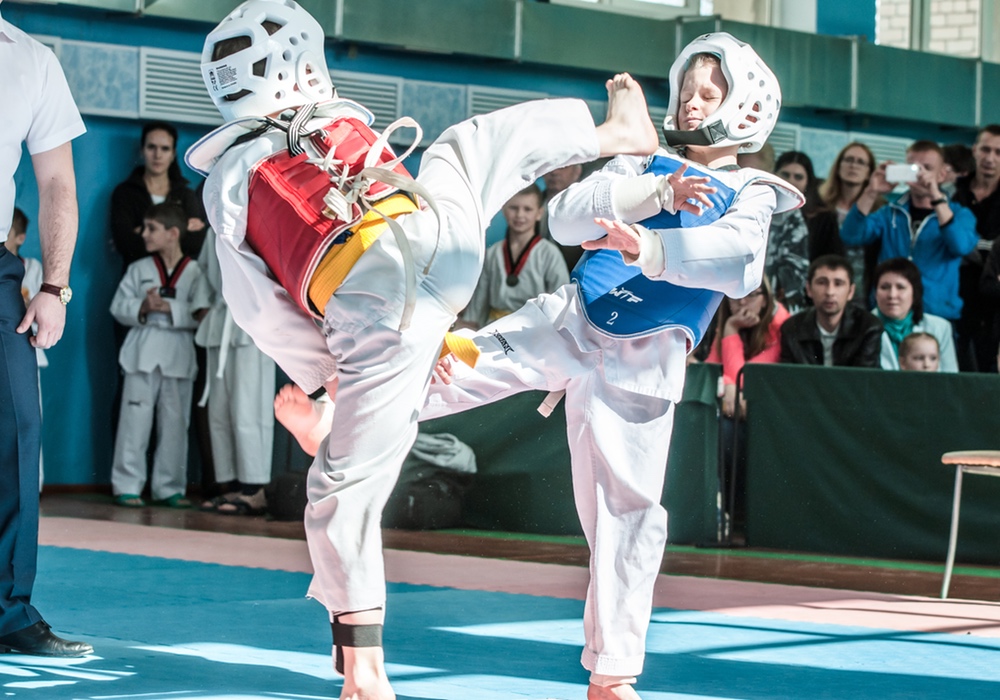Legacy Martial Arts Salisbury – Work with Experienced Instructors in a Positive Setting
Exactly How Martial Arts for Children Can Increase Confidence and Self-control in Young Martial Artists
Karate for children offers an one-of-a-kind opportunity to develop self-confidence and discipline in young martial musicians. As they find out brand-new techniques and face difficulties, they not only get skills but also create a solid sense of self-regard. This structured setting encourages them to respect the trip of renovation. But exactly how does this training translate right into their daily lives? Discover the deeper links that make karate greater than simply a sporting activity.
The Value of Self-confidence in Youth Advancement
Self-confidence is a necessary structure block in childhood advancement. When you support your child's self-worth, you equip them to deal with challenges, take dangers, and share themselves easily. Youngsters with confidence are much more happy to check out social scenarios and new tasks, which can cause long-term friendships and useful experiences.Encouraging your kid to get out of their comfort area cultivates durability. They find out that failing isn't completion however instead a stepping stone to success. By commemorating their success, regardless of exactly how small, you help them recognize their capabilities and worth.In this trip, support and positive support from you play an essential duty. Whether it's with praise or just being present, your participation enhances their confidence. As they expand, this self-assurance comes to be a lifelong property, equipping them to browse both obstacles and chances with a strong feeling of self.
Just How Martial Arts Shows Technique and Focus
Martial arts helps you construct self-control and emphasis with its structured training program. As you exercise mindfulness during each session, you'll learn to concentrate better both on and off the mat. And also, setting and attaining goals in karate reinforces your capacity to remain dedicated and attentive.
Structured Training Routine
While you participate in karate training, you'll swiftly discover how a structured routine instills self-control and focus in young specialists. Each class complies with a particular layout, consisting of workouts, technique practice, and sparring. This uniformity instructs you to respect the process and dedicate to enhancement. As you learn forms and techniques, you develop a feeling of responsibility for your own progress.The organized setting urges you to establish objectives, whether understanding a new belt or improving a kata. You'll locate that staying focused throughout drills and courses hones your focus. The self-control you cultivate in martial arts extends beyond the dojo, favorably influencing your schoolwork and daily regimens. Each session reinforces the value of devotion, assisting you grow right into an extra disciplined individual.
Mindfulness in Method
As you practice martial arts, you'll find that mindfulness ends up being a vital part of your training. Each relocation requires your full attention, aiding you remain concentrated on the present minute. You'll find out to ignore disturbances and focus on your breathing, movements, and intents. This heightened understanding sharpens your reflexes and enhances your discipline.During sparring or forms, you'll uncover the significance of being mentally existing - Karate Salisbury MD. You'll discover how this focus not only boosts your technique but additionally develops your confidence. By practicing mindfulness in karate, you grow perseverance and resilience, crucial attributes that prolong beyond the dojo. This way, karate instructs you to harness your mind, assisting you develop a self-displined method to difficulties both on and off the floor covering

Setting Goal Techniques
Setting objectives in karate isn't nearly gaining belts; it's a powerful way to grow self-control and focus. When you establish certain, possible targets, you produce a roadmap for your development. Rather of simply intending to boost your kicks, attempt concentrating on grasping a specific technique each month. This method keeps you motivated and engaged.Breaking down bigger objectives right into smaller sized, manageable actions aids you track your progression and commemorate tiny victories along the means. Whether it's perfecting your stance or increasing your sparring endurance, every goal reinforces your dedication. As you attain these objectives, you'll develop self-confidence in your skills and develop a solid sense of self-control that prolongs past the dojo into everyday life.
Building Durability Through Martial Arts
Martial arts, specifically martial arts, offers children a special opportunity to construct strength in a helpful atmosphere. In courses, they encounter challenges that push their limits, whether it's understanding a brand-new method or competing with a companion. Each setback, like a missed kick or a lost suit, comes to be a chance to find out and grow.As they practice, kids discover to embrace pain and keep attempting, also when points obtain challenging. They discover that failing isn't completion; it's part of the trip. This state of mind assists them recuperate stronger, not just in the dojo, however in daily life.With each challenge they overcome, your kid builds confidence in their capability to take on barriers, fueling their decision. Via martial arts, they'll recognize that strength isn't almost physical stamina; it has to do with psychological grit and willpower, empowering them to encounter whatever life tosses their means.
The Role of Respect in Karate Training
Respect is a fundamental concept in karate training, fostering a society of technique and sociability amongst trainees. When you tip onto the dojo floor, you're not simply finding out techniques; you're likewise learning to appreciate your instructors, peers, and the art itself (Karate Salisbury MD). Bowing at the start and end of class isn't simply a procedure; it symbolizes your recommendation of others' efforts and dedication.As you establish mutual website respect, you'll locate it enhances your learning experience. You'll pay attention extra attentively to your trainer and gain understandings from fellow pupils. This atmosphere motivates useful criticism and support, allowing everyone to grow together.Moreover, respect cultivates self-control. Identifying the worth of effort and humility aids you stay concentrated on your training. Consequently, this regard converts into your daily life, improving your communications and relationships outside the dojo. Via karate, you discover that regard is crucial for individual growth and neighborhood building
Establishing Objectives and Accomplishing Success in Karate

Social Abilities and Teamwork in the Dojo
While training in the dojo, youngsters naturally establish essential social abilities and team effort abilities. As they practice together with peers, they discover to interact efficiently, share area, and support each other. Each course offers opportunities for partnership, whether it's throughout companion drills or group workouts. This teamwork cultivates friendships and produces a sense of belonging, making the dojo a nurturing environment.Kids likewise obtain useful conflict resolution abilities. When they run into challenges, such as differences during sparring, they discover to browse these circumstances constructively. They exercise perseverance and empathy, understanding that everyone has different staminas and weaknesses.Moreover, participating in group tasks cultivates a sense of accountability. You'll see your child discovering to count on colleagues and take obligation for their function in a group. These experiences not just boost their martial arts trip yet also outfit them with social tools they'll bring right into other areas of life.

The Long-Term Benefits of Martial Arts Beyond Childhood Years
As children expand up and change into the adult years, the benefits of karate expand much beyond the dojo. You'll discover that the technique and emphasis learned through martial arts can translate into your academic and expert life. Establishing and accomplishing objectives in fighting styles cultivates a solid job values, which can push you to stand out in any endeavor.Moreover, the self-confidence gained from sparring and grasping techniques can boost your self-esteem, aiding you take on obstacles head-on. This durability comes to be important as you face the uncertainties of adulthood.Additionally, the social skills created with synergy and friendship in the dojo can bring about better relationships in both professional and personal spheres. You'll discover to connect successfully, resolve conflicts, and construct a helpful network.Ultimately, karate shapes not simply competent martial musicians, but well-shaped people all set to tackle the world.
Often Asked Questions
What Age Is Ideal to Beginning Karate for Children?
You can begin martial arts as early as age 4 or 5, yet it typically depends upon your kid's maturation and passion. Locating a class that suits their age and power degree makes a huge difference.
Exist Any Health Advantages From Practicing Karate?
Yes, practicing karate offers many health and wellness advantages. You'll enhance your flexibility, stamina, and sychronisation while enhancing cardio physical fitness. Plus, it boosts focus and psychological wellness, making it a wonderful option for total physical and mental health and wellness.
How Usually Should Youngsters Attend Martial Arts Courses?
You need to urge your kids to go to karate classes a minimum of a couple of times a week. Consistency aids them discover strategies properly and develop abilities, making their experience a lot more delightful and gratifying in the long run.
Can Karate Assist With Taking Care Of Anxiousness in Children?
Yes, martial arts can help manage anxiety in youngsters. It instructs emphasis and self-constraint while providing a risk-free electrical outlet for power. You'll discover your youngster growing much more confident and calm as they practice routinely.
What Equipment Is Required for Kids Starting Martial Arts?
